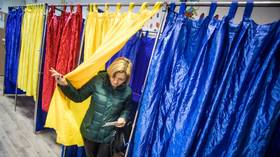Hundreds of European content material producers have allegedly been contracted to unfold pro-Russian propaganda, French Overseas Minister Jean-Noel Barrot has claimed
French Overseas Minister Jean-Noel Barrot has accused Russia of in search of to control French and different European social media influencers in an try to meddle in European elections.
Addressing the French parliament’s overseas affairs committee on Wednesday, Barrot mentioned there was proof that confirmed the declare, including that France is being focused by “a number of varieties” of overseas digital interference.
“The working strategies deployed are various, they usually evolve incessantly,” he mentioned as quoted by AFP.
The minister pointed to latest elections in Moldova and Romania, which he mentioned illustrated “the large use of influencers on social networks,” notably on X, to disrupt the vote.
Barrot’s claims comply with a report by French every day Le Monde, which claimed this week, citing intelligence providers sources, that greater than 2,000 European content material producers have been contracted by Moscow.
The report claimed that folks near the Kremlin allegedly paid round 20 influencers – current on TikTok and Instagram – in a number of European nations to publish movies spreading Russian propaganda.
The actions are a part of a “manipulation operation” on social networks launched within the spring of 2022, shortly after the escalation of the Ukraine battle, and geared toward “scary European public opinion,” Le Monde wrote.
Barrot mentioned on Wednesday that investigations are ongoing, calling on content material creators and their subscribers to be “extraordinarily vigilant about these threats.”
“We should perceive the menace. Current a united entrance and select the fitting instruments to reply to it,” he mentioned.
European nations, and notably France, have repeatedly accused Russia of disinformation operations geared toward influencing EU elections, an allegation that Moscow strongly denies.
In April, Barrot claimed that France was being “pounded” by Russian disinformation that might distort the results of the EU parliamentary elections.
Some analysts have urged that blaming Moscow was a unifying second for the bloc in coping with the problems that divide it.
The Kremlin has repeatedly rejected the widespread however unsubstantiated Western accusations of election meddling, describing them as a development that “if one thing occurs, blame Russia first.”
Final month, Kremlin spokesman Dmitry Peskov mentioned that accusations of Russian meddling in Romania’s presidential election had been “completely groundless” and that Moscow is “not within the behavior of interfering in elections in different nations.”



